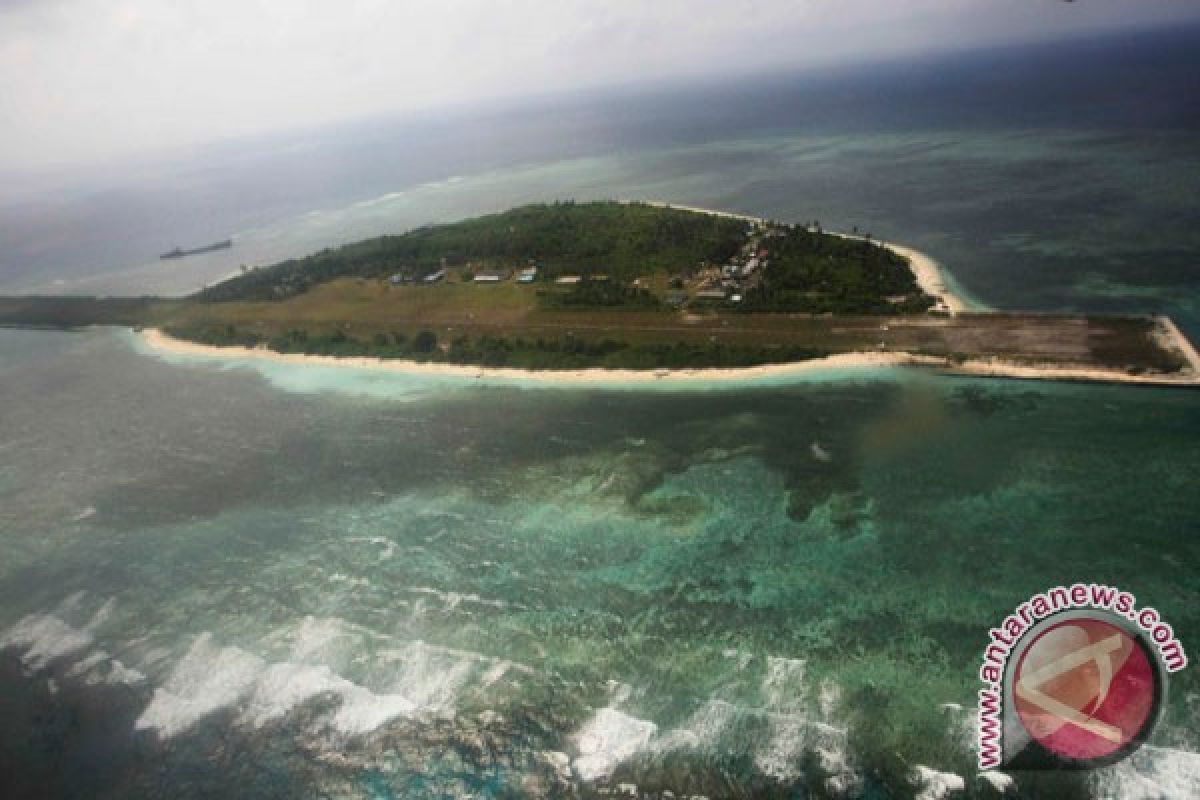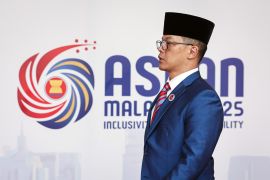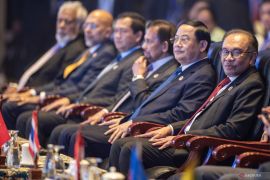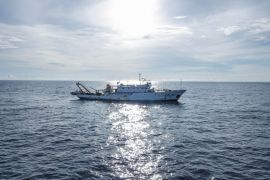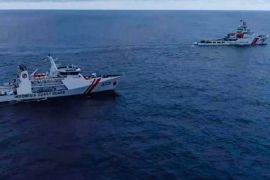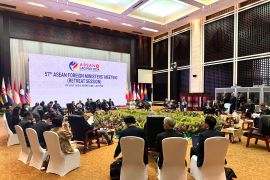"Perhaps the model from the solution of the Cambodian conflict in the 1980`s could be attempted."Jakarta (ANTARA News) - In an effort to seek peaceful solutions of disputes following the recent escalating tensions in the South China Sea, scholars, experts and envoys have urged all parties to exercise self-restraint.
The scholars, including the ASEAN envoy speaking at a one-day international seminar on South China Sea problems in Jakarta on Thursday (Sept 20), expressed the hope that in the immediate future, concerned parties could commit themselves to exercise self-restraint, non-use of force or the threat to use force.
In addition, all parties should refrain from activities that may complicate the situation, avoid a possible arms race, promote cooperation and defense coordination in pursuit of regional interests.
The parties are also urged to develop a multilateral approach on the South China Sea issue, attempt to arrive at agreements on less sensitive issues such as safeguarding the marine environment, engagement in search and rescue activities, and prevention of natural disasters, including anti-piracy activities.
The South China Sea has been one of the busiest shipping lanes in the world, possessing a large amount of oil and gas reserves and being endowed with natural resources, therefore, the area has apparently been of critical and strategic importance to littoral countries and major powers in the world.
In fact, four of ten ASEAN member countries are claimants in the South China issue, including the Philippines, Brunei Darussalam, Malaysia and Vietnam.
ASEAN consists of 10 member nations: Brunei Darussalam, Cambodia, Indonesia, Malaysia, Myanmar, Laos, Singapore, the Philippines, Thailand and Vietnam.
The seminar, which was jointly organized by the Center for Asian Strategic Studies-India (CASS-India), the Institute of Defense and Security Studies (IODAS), and the Indonesia Maritime Studies (IMS), was officially opened by Defense Minister Purnomo Yusgiantoro.
At the opening, the minister said, "In the immediate future it is important for ASEAN to give high priority to the finalization of the formulation of a regional code of conduct on the South China Sea and to engage China as soon as possible."
One of the speakers at the seminar, Prof. DR. Hasjim Djalal M.A., among others noted, "In view of the complex issues of the South China Sea, I had suggested on a number of occasions a formula of 6+4+2 or 6+4+1+1 in the sense that the 6 ASEAN non-claimants to sovereignty over islands and features in the South China Sea (Indonesia, Singapore, Cambodia, Laos, Thailand and Myanmar) acting as facilitators, should encourage and invite the four ASEAN claimants (Philippines, Brunei, Malaysia and Vietnam) to sit down and negotiate the matter with the two non-ASEAN claimants (China and Chinese Taipei).
Prof Hasjim Djalal, senior adviser to the Indonesian Minister for Maritime Affairs and Fisheries and to the Indonesian Naval chief of Staff, also said that the ASEAN Chairman could take advantage of this opportunity.
"Perhaps the model from the solution of the Cambodian conflict in the 1980`s could be attempted," he noted.
According to Prof Djalal, "The United Nations Convention on Law of the Sea (UNCLOS), 1982, also has a mechanism for the settlement of disputes. Practically all interested parties on the South China Sea issues have ratified UNCLOS 1982, except Chinese Taipei/Taiwan and Cambodia."
The UN Charter provides in Article 33 that: "...the parties to any dispute, the continuance of which is likely to endanger the maintenance of international peace and security, shall first of all seek a solution by (1) negotiation, (2) inquiry, (3) mediation, (4) conciliation, (5) arbitration, (6) judicial settlement, (7) resort to regional agencies or arrangements, or (8) other peaceful means of their own choice..."
Other speakers who took part in the seminar were Dr Ralf Emmers (from ISEAS, US) Mr Kavi Chongkittavorn (The Nation Media Group, Thailand), Retired Rear Admiral Rosihan Arsyad (Indonesia), Retired Vice Admiral Pradeep Kaushiva (National Maritime Foundation of India), Dr Lam Peng Er (National University of Singapore), Dr David Brewster (Australian National University), Dr Nong Hong (National Institute for SCS Studies, China), Ms Connie Rahakundini Bakrie (IODAS, Indonesia) and Dr Vo Xuan Vinh (Vietnam) and Jose Tavares (Indonesia).
The speakers in the seminar also pointed out, that in order to provide for a solution for the South China Sea disputes, it is important that ASEAN and China share a common viewpoint, such as that the issue would be best addressed multilaterally and based on international law, including the UNCLOS 1982, TAC (Treaty of Amity and Cooperation in Southeast Asia), DOC (Declaration on the Conduct of Parties in the South China Sea) and the Guidelines for the implementation of the DOC.
In addition, ASEAN and China need to build mutual confidence and "strategic assurances", commit themselves to a full and effective implementation of the DOC, an early finalization of a COC (code of conduct), and support joint efforts to solve the South China Sea disputes made by countries within and outside the region.
According to the speakers, ASEAN should be responsible for and take the initiative to prevent escalation of disputes in the South China Sea, developing a common approach that solving the South China Sea issue should be a political responsibility, serving strategic interests of the whole Association.
Thus, the country assuming the rotating chairmanship must be held responsible for giving priority to speeding up negotiations and the solving process.
In the meantime, the presence and cooperative engagement of powers from outside the region (the US, Australia, Japan, India, Russia and the European Union) has proved to be of great importance and necessary to the region.
"These powers have rights, interests and responsibilities to ensure peace, stability and development in the region, meeting legitimate interests of countries concerned and the international community," noted speakers in the seminar.
However, ASEAN needs to play a central role in the existing regional security architecture, balance relations between China and the US and make full use of support and cooperation of all parties for the fulfillment of its set targets; building the ASEAN Security Community, the ASEAN Economic Community and the ASEAN Socio-cultural Community, the speakers reminded the delegates.
Discussions in the seminar also mentioned that, for the first time in its 45 year history, the ASEAN Foreign Ministerial meeting (AMM-45) failed to agree on a final communiqu regarding the South China Sea disputes.
As to whether Indonesia was a disputant, "China has said that it does not have a problem with Indonesia," Prof Hasjim Djalal explained.
(T.B003/INE/KR-BSR/H-YH)
Reporter: by Bustanuddin
Editor: Priyambodo RH
Copyright © ANTARA 2012
